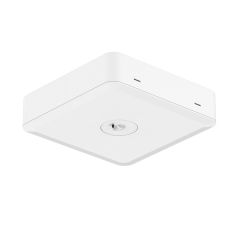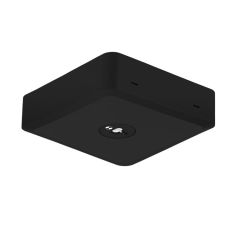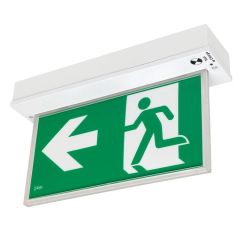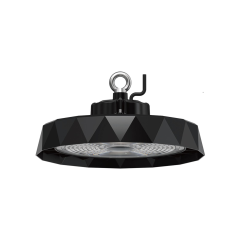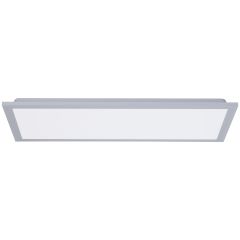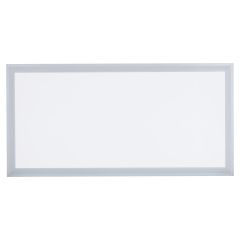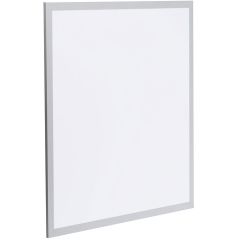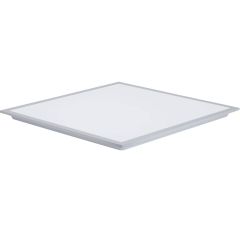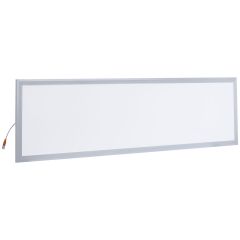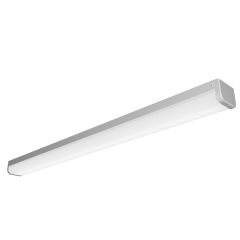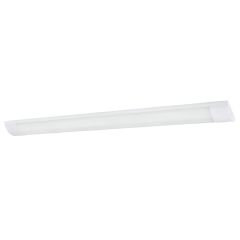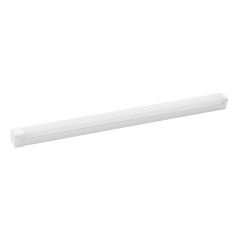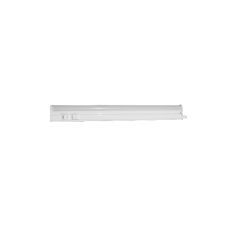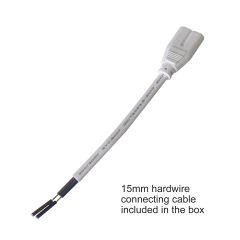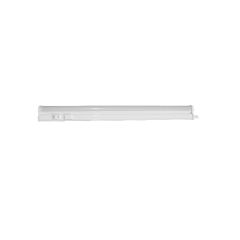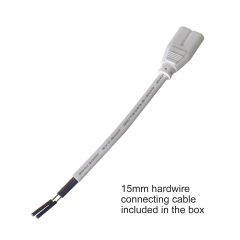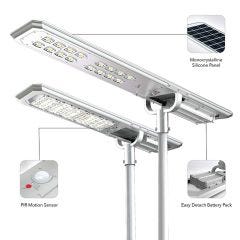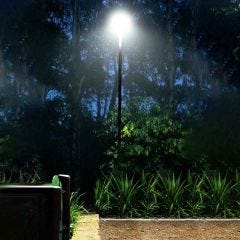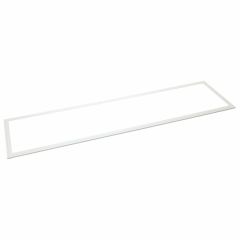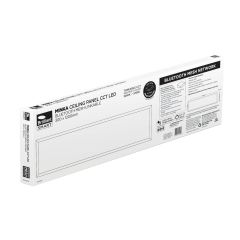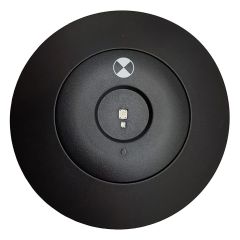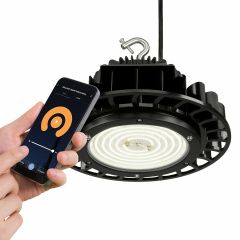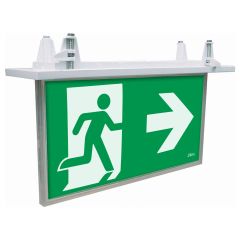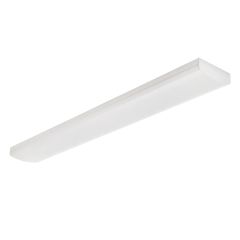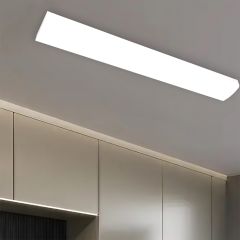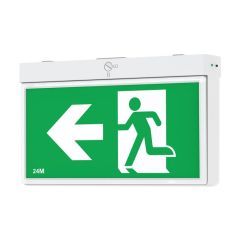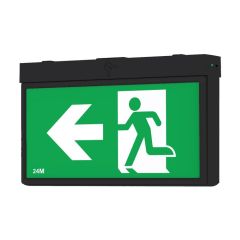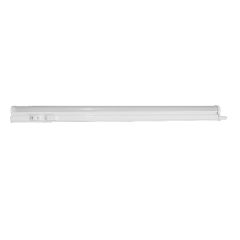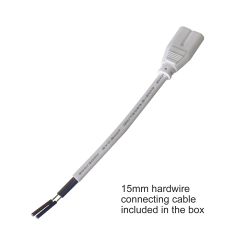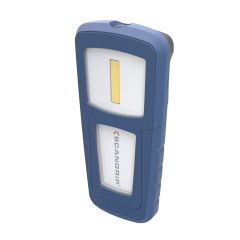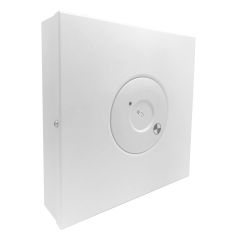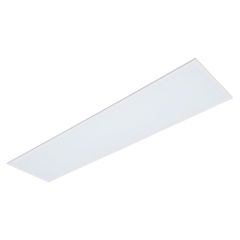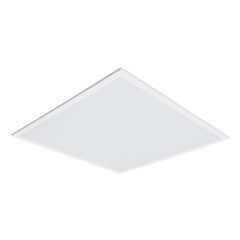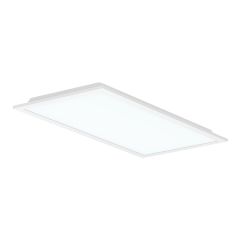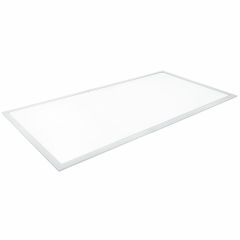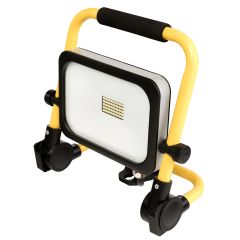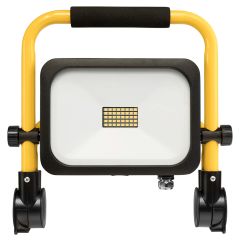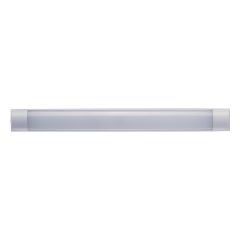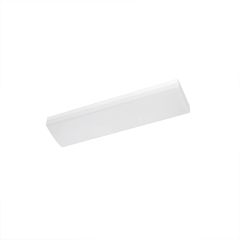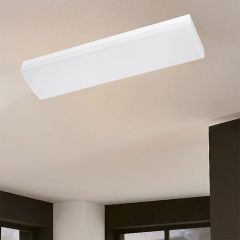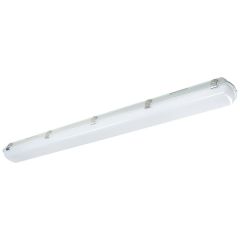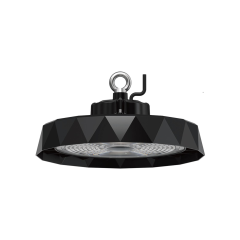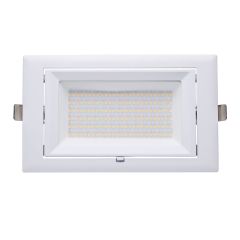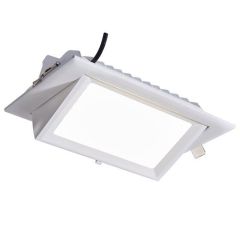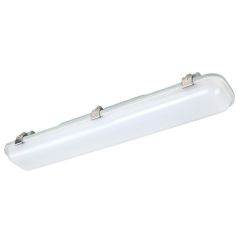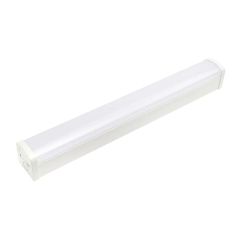LED Batten Lights
Contemporary LED batten lights can be considered the updated version of fluorescent tube lighting. LED technology adopts the familiar tube shape commonly associated with traditional lighting, but offers the advantages unique to LEDs. As a result, you can enjoy time and cost savings, as LED lighting requires significantly less maintenance and replacement components. Moreover, in comparison to conventional tube lighting, LED batten lights possess a more stylish appearance, seamlessly blending with diverse home decor styles and catering to various commercial requirements.
Emergency Lighting
Emergency lighting refers to a type of lighting fixture that includes a battery pack, which automatically activates when a building experiences a power outage.
During emergency situations, these lights play a crucial role in ensuring the safety of individuals present in the building. In the event of a power failure, the emergency lights are triggered and rely on their battery power to provide illumination, guiding occupants towards the quickest and safest exit routes.
In Australia, emergency lighting systems must adhere to the standards defined in AS/NZS 2293 Parts 1, 2, and 3. These standards establish guidelines pertaining to the design, installation, maintenance, and product specifications of emergency lighting systems, which are mandatory for all commercial premises. It is imperative that all emergency lighting undergo regular testing, maintenance, and comply with the requirements outlined in the AS/NZS 2293 standard.
Low Bay & High Bay
Low Bay Lighting - Low bay lighting refers to lighting fixtures that are typically used in ceilings with a height of under 5 meters from the floor. These types of ceilings, known as low bay ceilings, are frequently found in retail establishments and public buildings.
High Bay Lighting - High bay lighting refers to lighting fixtures that are typically used in ceilings with a height ranging from 5 to 12 meters from the floor. These types of ceilings, known as high bay ceilings, are commonly found in industrial settings and some commercial spaces. High bay lights are specifically designed to provide effective lighting in areas with taller ceilings, where a higher level of illumination is required to adequately light up the space. They are commonly utilized in warehouses, factories, and large-scale facilities.
Panels & Troffers
Panel Lighting - A flat panel light fixture is a form of LED lighting known for its sleek and slim design. It is usually rectangular or square in shape and is directly mounted onto the ceiling. These fixtures are commonly referred to as LED panel lights.
Flat panel light fixtures find widespread use in commercial, industrial, and office settings to deliver uniform and efficient lighting. They are highly energy-efficient and boast a longer lifespan compared to traditional incandescent bulbs. Notably, they can be adjusted for dimming, allowing users to control the brightness as per their requirements. Furthermore, they offer different colour temperature options, enabling customization to achieve the desired lighting ambiance or conditions.
Troffer Lighting - A troffer light fixture is a type of lighting commonly found in commercial and office environments. It is a rectangular-shaped light that is recessed into the ceiling and serves the purpose of illuminating a specific area or task.
Troffers can be installed in such drop ceilings and can either be surface mounted, meaning they are attached to the surface of the ceiling, or recessed, where they are mounted inside the ceiling to be flush with the ceiling surface.
Smoke Alarms
Smoke alarms have become increasingly important as buildings today become more complex in their physical layout and functionality. This heightened complexity places greater demands on the reliability of smoke detectors. It is crucial that these detectors are adaptable to meet the diverse requirements of different building applications.
Street Lights
In the realm of commercial street lighting, there exists a wide array of types, models, and options to choose from. Certain lights prioritize higher power output, while others prioritize optimal energy efficiency. When considering factors such as power source, height, hue, colour temperature, as well as the availability of LED and solar alternatives, the process of navigating through these choices and understanding their implications can feel overwhelming. However, it's important to note that each type of street light has its own specific purpose in which it truly excels, and no single street light is universally suitable for all tasks. Rest assured, whatever your specific needs may be, we have a range of options available to perfectly align with your desired applications.
Work & Safety Lights
Work Lights - Portable work lights provide a bright and energy-efficient alternative to conventional lighting choices. These lights emit a powerful level of brightness, making them suitable for a wide range of indoor and outdoor tasks, including repairs, plant maintenance, and construction projects. Their portability allows for easy movement between locations, eliminating the need for complicated setup of additional lighting fixtures or the search for available power outlets. Moreover, they offer excellent illumination even in dark or poorly lit areas where traditional lighting options may not be practical.
Safety Lights - A safety light plays a crucial role in enhancing your visibility to others, significantly reducing the chances of accidents or encountering hazardous situations, whether you're on land, in water, or even up in the air. When selecting a safety light, it is essential to prioritize high visibility from a distance. Additionally, factors such as battery life, weight, size, and attachment methods are also significant considerations in choosing the right safety light for your needs.




